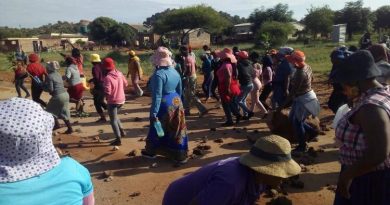Middle East Regional wars and potentials to reverse SA economic gains
In the second half of 2024, Brent crude oil has been stable under 80 dollars a barrel. However, it recently jumped up with few dollars due to Middle East regional conflict which will in the short run disrupt and threaten the supply of oil. The market and the entire financials are indeed threatened by a possible planned target to Iranian oil infrastructure by Israel.
Iran is a member of the Organization of the Petroleum Exporting Countries and in the top 20 of countries in the world producing over 50 billion barrels of oil per day. Other members of OPEC include countries such as United Arab Emirates (UAE), Venezuela, South Arabia and Iraq, which are closely boarded with Iran.
These possible disruptions aimed very high to cut down the production and September 2019 Abqaiq-Khurais attack which struck a Saudi Arabian oil processing facility could repeat itself. 2020 Covid-19 pandemic were not immune and contributed immensely to these production cuts by OPEC. Those spikes resulted in the significant cut in the oil production which caused global oil price to climb over 120 dollars a barrel.
South Africa Reserve Bank (SARB)’s Monetary Policy Committee (MPC), recently cut the repo rate by 50 basis points. The move was strongly and primarily influenced by the strong rand to US dollar that averaged at R17 and also a stable low inflation rate under 4%, which is far below maximum target of 6% by the central bank.
Last week, following these monetary policy shifts and planned oil output hike by OPEC, department of minerals and petroleum resources announced a fifth month consecutive drop in petrol, diesel and illuminating paraffin prices by over R1 a litre. South African economy will be highly on relief mode, especially during the upcoming festive season.
However, these Middle East wars could potential reverse some gains the country is envisioned due to some exogenous factor oil production pressure and cuts. Shipping and insurance cost in the foreign trade will escalate and eventually create a further rise in the crude oil price. As a results, South African economy will again experience fuel price hikes, weak currency as well as high and uncontrollable inflation rates. In the next two seatings of the SARB’s MPC, the repo rate will be a biggest price to pay in stabilising the economy out of a foreign dust.
How can we avoid these traps?
Isaac Mahlakwane
Economic Development practitioner & Independent Economist




